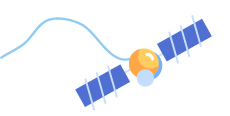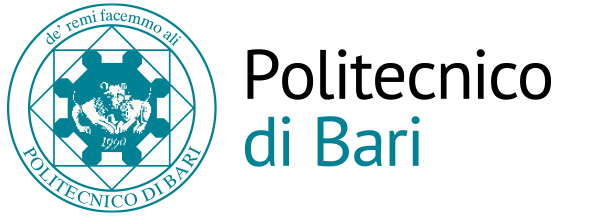
Accesso degli studenti stranieri ai corsi di laurea – Politecnico di Bari
L’accesso per l’anno accademico 2024-2025 presso le università italiane statali e non statali autorizzate a rilasciare titoli aventi valore legale e presso le istituzioni italiane statali e non statali per l’alta formazione è regolato da apposita circolare MIUR che può essere consultata sul sito internet http://www.studiare-in-italia.it/studentistranieri.
Eventuali informazioni e chiarimenti potranno essere richiesti al Servizio Segreteria tramite portale Helpdesk per corsi di laurea e didattica.
L’immatricolazione si intende regolarizzata previa valutazione del Politecnico di Bari, dopo:
· la verifica dell’autenticità della documentazione prodotta e della sussistenza di tutti gli elementi e requisiti utili al fine dell’immatricolazione
· lo svolgimento dei colloqui in ingresso
· il superamento del concorso di ammissione (Bando 2025-2026, dr. N. 115 del 24/1/2025)
· il pagamento della contribuzione universitaria prevista
· esibizione del Visto e del permesso di soggiorno
Per gli studenti che si iscrivono ad un corso di laurea magistrale biennale è obbligatoria la preventiva valutazione del possesso dei requisiti curriculari da parte della Segreteria ai fini dell’ammissione, secondo le indicazioni riportate sulla pagina web https://www.poliba.it/it/didattica/ammissione-lauree-magistrali-biennali-llmm-aa-20242025.
Per gli studenti stranieri non comunitari residenti all’estero (richiedenti visto) che non sono stati esonerati dalla prova di conoscenza della lingua italiana, in base alla circolare del Ministero Italiano di cui sopra, è prevista una prova di conoscenza della lingua italiana, a livello B2 del QCER, in aggiunta alle selezioni in ingresso cui sono tenuti tutti gli studenti italiani e stranieri.

AMMISSIONE AI CORSI DI LAUREA TRIENNALE
I candidati in possesso di diploma di scuola superiore ottenuto dopo 10 o 11 anni di scolarità devono presentare, oltre al diploma di studi secondari, la certificazione accademica che, nel caso di 11 anni di scolarità, attesti il superamento di tutti gli esami previsti per il primo anno di Università nel proprio Paese o, nel caso di 10 anni di scolarità, attesti il superamento di tutti gli esami previsti per i primi due anni di Università nel proprio Paese.
La certificazione accademica consente l’immatricolazione al primo anno accademico e l’abbreviazione della carriera universitaria solo nel caso in cui la durata della frequenza universitaria sia superiore al periodo utile ad integrare il periodo scolastico mancante.
I candidati provenienti da Paesi in cui è previsto uno speciale esame di ammissione all’Università (prova di idoneità accademica), devono presentare, oltre al Diploma di studi secondari, anche la certificazione relativa a tale esame di ammissione con indicazione del voto ottenuto.
→ Documenti da consegnare al Politecnico insieme alla domanda di preiscrizione ai corsi di laurea triennale
- titolo finale in originale degli studi secondari, con indicazione del voto finale o certificato sostitutivo a tutti gli effetti di legge; certificato attestante il superamento della prova di idoneità accademica quando prevista
- certificato attestante gli studi accademici parziali già compiuti se il titolo di studio è stato conseguito al termine di un periodo inferiore a 12 anni di scolarità o se si richiede abbreviazione di corso (in questo caso il certificato dovrà specificare gli esami superati ed essere corredato da documentazione ufficiale circa i programmi degli stessi esami)
- diplomi o certificati di conoscenza della lingua italiana
- 2 fototessere colori, di cui una autenticata dalla Rappresentanza diplomatica Italiana competente per territorio, valide per il riconoscimento (da caricare sul portale ESSE3) un documento di identità in corso di validità che dovrà essere lo stesso che il candidato utilizzerà il giorno della prova per il riconoscimento e che dovrà essere anche trasmesso a CISIA nei termini e secondo le modalità che il CISIA stesso renderà note al candidato medesimo tramite il proprio portale
- dichiarazione di valore*
Nota: Le operazioni di iscrizione al concorso devono necessariamente essere svolte dal candidato. Non è possibile delegare tali operazioni. L’Ufficio Concorsi, Immatricolazioni, Iscrizioni e Diritto allo Studio è autorizzato a comunicare soltanto con i candidati. L’iscrizione si intende conclusa solo dopo il completamento di tutte le fasi previste dall’art.4 del DR. N. 115 del 24/1/2025 (Bando di concorso per l’ammissione ai corsi di laurea triennali del politecnico di Bari AA. 2025-2026) nei termini riportati nell’art. 4 medesimo, e di tutte le fasi del presente articolo.
*La dichiarazione di valore, che va richiesta alla Rappresentanza diplomatica italiana nel proprio Paese di competenza, è un certificato che accerta e conferma che il titolo di studio di scuola secondaria superiore, posseduto da chi fa richiesta, consente l’ammissione ai corsi universitari nel Paese nel quale è stato conseguito.
Tutti i documenti in lingua straniera richiesti per la prescrizione devono essere legalizzati dalla Rappresentanza Diplomatica italiana e tradotti in lingua italiana.
La traduzione può essere fatta da traduttori locali e gli studenti devono richiedere alla Rappresentanza diplomatica italiana, competente per territorio, la certificazione della conformità stessa della traduzione.
Ulteriori informazioni sono contenute nel Bando di concorso per l’ammissione ai corsi di laurea triennali del politecnico di Bari AA. 2025-2026 DR. N. 115 del 24/1/2025

RILASCIO, DA PARTE DEL POLITECNICO DELLA LETTERA DI IDONEITÀ ALL’IMMATRICOLAZIONE AD UN CORSO DI LAUREA TRIENNNALE o A CICLO UNICO
Per gli studenti interessati ad immatricolarsi ad un corso di laurea triennale o a ciclo unico la documentazione da produrre è la seguente:
→ Titoli di studio
- Certificato o documento sostitutivo, con relativa traduzione in lingua italiana, relativo al Diploma di Scuola secondaria superiore conseguito nel proprio Paese. Nella certificazione dovranno essere precisati: la denominazione del Diploma, l’Istituzione ove il titolo è stato conseguito, l’anno di conseguimento del titolo e la scolarità con la quale il titolo di studio è stato conseguito. Si ricorda che per la normativa italiana, per essere ammessi all’Università (o Politecnico), il titolo conseguito all’estero deve essere acquisito con almeno dodici anni di scolarità. Inoltre, se nel Paese dello studente, per l’accesso all’Università sono previste prove di idoneità accademiche (es. GaoKao), nella certificazione va precisato se sono state superate o meno le prove di idoneità predette.
- Certificato di documento sostitutivo, con relativa traduzione in lingua italiana, relativa agli studi universitari compiuti qualora il Diploma di cui sopra sia stato conseguito con una scolarità inferiore ai dodici anni (almeno un anno di Università deve essere completato se la scolarità è di undici anni, oppure due anni qualora la scolarità è stata di dieci anni.
→ Conoscenza della lingua italiana
Certificato o documento sostitutivo, con relativa traduzione in lingua italiana, relativo alla conoscenza della lingua italiana, livello conseguito e Istituzione presso la quale la certificazione è stata conseguita. In assenza di certificazione o a completamento della predetta certificazione, lo studente potrà produrre lettere di presentazione di docenti o altri documenti (es. Lettera di motivazioni) con relativa traduzione in lingua italiana e relative alla conoscenza dell’italiano dello studente. Gli studenti non in possesso di certificazione o altri documenti, ma già in possesso di una buona conoscenza della lingua italiana, devono precisare le modalità con cui hanno imparato la lingua italiana.
→ Copia di documento di riconoscimento in corso di validità (passaporto)

AMMISSIONE AI CORSI DI LAUREA MAGISTRALE
Hanno accesso ai corsi di laurea magistrale tutti i candidati in possesso di un titolo di studio universitario equivalente al titolo italiano di laurea triennale di primo livello ed hanno dimostrato il possesso di specifici numeri minimi di CFU conseguiti in insiemi di Settori Scientifico Disciplinari se previsto dal Regolamento Didattico del corso di Laurea Magistrale al quale ci si vuole iscrivere; per i titoli esteri si procederà con l’analisi del curriculum accademico.
Per tutti i corsi di Laurea Magistrale è prevista la verifica della conoscenza della lingua inglese ad un livello minimo, stabilito dal Regolamento Didattico inoltre per gli studenti extra-comunitari è previsto l’accertamento della conoscenza della lingua italiana, oggetto di una specifica comunicazione ai sensi della circolare interministeriale annuale riferita ai candidati in questione.
Per ulteriori informazioni sulle modalità di accertamento dei requisiti, ti invitiamo a consultare l’apposito paragrafo delle Indicazioni operative per l’accesso alle Lauree Magistrali biennali in Ingegneria

RILASCIO, DA PARTE DEL POLITECNICO DELLA LETTERA DI IDONEITÀ ALL’IMMATRICOLAZIONE AD UN CORSO DI LAUREA MAGISTRALE
Documenti da far pervenire, in copia, al Politecnico di Bari al fine di ottenere la lettera di idoneità alla immatricolazione necessaria per il rilascio del visto per studio universitario da pate della Rappresentanza Diplomatica Italiana per gli studenti interessati a immatricolarsi ad un corso di laurea magistrale:
→ Titoli di studio
- Certificato o documento sostitutivo, con relativa traduzione in lingua italiana legalizzata, relativo alla laurea conseguita nel proprio Paese. Nella certificazione dovranno essere precisati: la denominazione della laurea, l’Istituzione di conseguimento della laurea, la durata in anni del corso di studi e l’anno accademico di conseguimento del titolo.
- Certificato o documento sostitutivo, con relativa traduzione in lingua italiana legalizzata, relativo agli esami sostenuti per il conseguimento della laurea.
→ Conoscenza della lingua italiana
- Certificato o documento sostitutivo, con relativa traduzione in lingua italiana, relativo alla conoscenza della lingua italiana, livello conseguito e Istituzione presso la quale la certificazione è stata conseguita. In assenza di certificazione o al completamento della predetta certificazione, lo studente potrà produrre Lettera di Presentazione di docenti o altri documenti (es. Lettera di motivazioni), con relativa traduzione in lingua italiana e relative alla conoscenza dell’italiano dello studente. Gli studenti non in possesso di certificazione o altri documenti ma già in possesso di una buona conoscenza della lingua italiana, devono precisare le modalità con cui hanno imparato la lingua italiana.
→ Copia di documento di riconoscimento in corso di validità (obbligatoriamente passaporto)
Ulteriori dettagli sulla documentazione necessaria sono contenuti nelle Indicazioni operative per l’accesso alle Lauree Magistrali biennali in Ingegneria.
Tutti i documenti richiesti dovranno essere prodotti in lingua italiana.
Nella lettera di idoneità alla immatricolazione viene precisata la documentazione (Dichiarazione di valore etc.) relativa al titolo di studio utile per l’ammissione al corso prescelto che, in originale, lo studente deve presentare all’arrivo a Bari.
La dichiarazione di valore, che va richiesta alla Rappresentanza Diplomatica Italiana nel proprio Paese di competenza, è un certificato che accerta e conferma che il titolo di studio di scuola secondario superiore, posseduto da chi fa richiesta, consente l’ammissione ai corsi universitari nel Paese nel quale è stato conseguito.

POSSIBILI ESITI
L’esito della procedura di accesso è visionabile sul Portale Esse3, nella sezione “Test di Ammissione/Concorsi”, nella quale è stata inserita la richiesta di ammissione stessa.
La Procedura di ammissione ha due possibili esiti:
· “Respinto”, nel caso di momentaneo non possesso di uno o più prerequisiti di accesso. In questo caso il candidato non otterrà l’ammissione (idoneità all’immatricolazione) e riceverà dal Centro Servizi per la Didattica indicazioni in merito agli eventuali requisiti da sanare (vedasi Regolamento);
· “Ammesso”, nel caso di possesso di tutti i prerequisiti di accesso e di idoneità all’immatricolazione.
Il candidato idoneo all’ammissione otterrà la possibilità di immatricolarsi mediante il portale Esse3 per l’a.a. 2024/2025 al corso di Laurea Magistrale per il quale hanno sottoposto la candidatura, secondo le procedure pubblicate sul sito istituzionale, dal 20 SETTEMBRE 2024 al 20 MAGGIO 2025.
Per informazioni e supporto nelle procedute rivolgersi all’Ufficio Concorsi, Immatricolazioni, Iscrizioni e Diritto allo Studio utilizzando esclusivamente il servizio TICKETING/HELPDESK, aprendo un ticket selezionando solo la categoria pertinente alla richiesta.

CORSI TRIENNALI OFFERTI IN LINGUA INGLESE
Ecco di seguito tutti i corsi di laurea del Politecnico di Bari, le cui lezioni vengono erogate in lingua inglese.

ARCHITECTURE SCIENCES FOR HERITAGE | ARCOD DEPARTMENT
The Bachelor of Science in “Architecture Sciences for Heritage” is an inter-university, international, three-year undergraduate degree course in Architecture with a focus on Knowledge and Design for Heritage.
The course is a joint degree programme between the Polytechnic University of Bari and the University “Ismail Qemali” of Vlore. The course is taught in English and the joint degree is valid in Italy and Albania.
The aim of the course is to train professionals who are able to deal with current problems of knowledge and transformation of the existing built and natural environment, whether they are aimed at conservation and enhancement or reconstruction and reuse.
Areas of interest and application include urban renewal and the reuse of buildings, including for energy efficiency purposes; the reconstruction of architectural and urban forms damaged by decay, abandonment and natural disasters; the restoration of landscapes damaged by inappropriate settlement and production activities; the reuse of abandoned or disused industrial, military and railway heritage; the reform of suburban districts and their housing stock; and the conservation, enhancement and management of historical, archaeological and monumental heritage.
Job Opportunities:
- Self-employed professional and consultancy work for small building, conservation and restoration projects;
- Collaboration with engineering, architectural and construction firms;
- Collaboration with institutions, public and private bodies involved in the management of towns and areas and the conservation and enhancement of their heritage;
- Collaboration with companies involved in the production of building materials, systems and components for new and existing buildings.
Admission Criteria
Students wishing to enroll must have a Secondary school/equivalent foreign qualification and must pass an admission test. The number of eligible students is determined annually, together with the number of places reserved for EU students and the number of places reserved for non-EU students.
Course Coordinator: Prof. Francesco Defilippis
francesco.defilippis@poliba.it
Websites: Bari Polytechnic University: http://www.poliba.it
University “Ismail Qemali” of Vlora: https://univlora.edu.al/

INDUSTRIAL DESIGN | ARCOD DEPARTMENT
The Master of Science programme in Industrial Design at the Polytechnic University of Bari trains international, multidisciplinary designers who are prepared to conceive the products of the future, ranging fluidly from tangible objects to virtual experiences, ecosystems and services.
Educational Objectives
The expected competences are those related to the critical and creative ability to use technological progress on a global scale, while respecting and enhancing tradition, the protection of cultures and diversity, inclusion, the quality of human life and the sustainability of the planet.
The course, which is taught entirely in English and attracts international and Erasmus students, is structured around multidisciplinary workshops that aim to bring together and cross-fertilise the humanistic culture of design with the tools and methods of research in the engineering, IT and business disciplines.
Skills focus on organising and managing the production and innovation processes of the product and/or service, as well as assessing the impact on the market and on the cultural and social fabric.
The course encourages individual abilities and preferences through the personalisation of the study plan with optional exams and the presence of a compulsory internship linked to the dissertation activity.
The methodological and theoretical part is balanced by practical application in the laboratory with drawing tools, virtual modelling, reverse engineering and rapid prototyping, programming applications and multimedia sites, virtual and augmented reality. Working groups bring together students from different backgrounds and cultures with industry professionals to develop soft skills such as teamwork, communication, prototyping and presenting ideas.
The Skills
The course is structured around two main subject areas:
– Process Development and Techniques: Industrial Design 1, Mechanical Design for Product, Information Design, Information Systems, Virtual Design and Simulation, Industrial Design 2, Material Selection Criteria for Design and Engineering, Evaluation for Product Development;
– Product Innovation for Environment and Territory: Design for indoor comfort, Interior design, Product design 1, Co-design and co-working, Innovation through tradition, Product design 2, Design for systems, Evaluation for product development.
Professional Opportunities
The industrial designer is capable of configuring and fully managing research and design activities with the aim of influencing design-led innovation processes in a multidisciplinary and international working context. He/she will be able to outline new production and consumption scenarios and evaluate the positive impact that the development of innovative artefacts can have in economic and socio-cultural terms.
The main career opportunities are in the manufacturing and service industries at international level and in institutions, associated professional firms, start-ups and the liberal professions.
Postgraduate Studies
Industrial design graduates with a particular aptitude for research and study can apply to PoliBa’s internal, national or international doctoral programme.
Course Coordinator: Prof. Annalisa Di Roma
annalisa.diroma@poliba.it

AEROSPACE ENGINEERING – DMMM DEPARTMENT
The Interuniversity Master’s Degree Course between the Polytechnic University of Bari and the University of Salento in Aerospace Engineering aims to develop knowledge and skills in disciplines that characterize the aerospace sector, such as Aerospace Structures and Constructions, Fluid Dynamics and Aerodynamics, Aerospace Propulsion, integrating them with information engineering content related to software, electronics, and telecommunications. The course is divided into two curricula: Aeronautics Design, offered at the Mesagne campus of the University of Salento, and Space Technology, offered at the Taranto campus of the Polytechnic University of Bari.
Educational Objectives
The Aeronautics Design curriculum is designed to be compatible with the prior knowledge of students coming from a non-specifically aerospace first-level education, with a basic course integrated with the fundamentals of Fluid Dynamics and Flight Mechanics, as well as a course in Numerical Methods for Aerospace. The curriculum is mainly dedicated to developing specific skills in the design and management of structures and propulsion systems used in the aeronautical field.
The Space Technology curriculum is designed for those who, already having a basic aerospace education at the first level, can directly tackle in-depth studies in the various characterizing sectors. This curriculum is particularly dedicated to developing specific skills in onboard systems and equipment for aeronautical and space vehicles, and certification of both the mechanical and structural components of the aircraft as well as the onboard hardware and software.
The proposed curricula are part of the Interuniversity project of the first and second level by the University of Salento and the Polytechnic University of Bari, and represent the continuation of the first-level educational path proposed within the Interclass Bachelor’s Degree in Aerospace Systems Engineering at the Taranto campus of the Polytechnic University of Bari.
Career Opportunities
Graduates with a Master’s Degree in Aerospace Engineering can be employed in various tasks related to the design, production, maintenance, and operational use of aircraft and space vehicles, including commercial and logistical aspects. They can also use their skills in fields other than aerospace, such as precision mechanics, production technologies, advanced materials, aerodynamics and fluid dynamics studies, automatic controls, computer science, and electronics.
Graduates can find employment at:
- large national, multinational, or international companies active in the aerospace field for the design and production of aircraft and/or aerospace engines;
- small and medium-sized enterprises that provide components and consultancy services to these companies;
- companies involved in the maintenance and logistics of aircraft;
- companies and entities managing airport sites;
- public and private entities involved in testing and/or certification in the field of civil aviation and flight assistance;
- the military aviation sector and aeronautical sectors of other armed forces
- industries for the design and production of machines, equipment, and systems where issues related to aerodynamics, lightweight structures, and advanced materials are relevant.
Further education
Graduates in Aerospace Engineering with a particular aptitude for research can continue their studies with a Ph.D. In this regard, the Ph.D. in “Aerospace Engineering and Sciences” is offered in collaboration by the Polytechnic University of Bari and the University of Bari.

AUTOMATION ENGINEERING – DEI DEPARTMENT
The Master’s Degree in Ingegneria dell’Automazione | Automation Engineering at Polytechnic University of Bari provides specialized engineering skills aimed at the analysis, design and operation of highly complex production systems, which require multidisciplinary skills in the fields of automation, mechanics, computer science, electronics and electrical engineering.
Educational Objectives
The trained figure acquires specialized skills in the following sectors:
• systems for the automatic control of plants or processes;
• modeling, analysis and management of complex systems;
• industrial robotics;
• electrical equipment and machinery, electric drives and power electronic systems;
• HMI (Human-Machine Interface) and SCADA (Supervisory Control and Data Acquisition) systems;
• automatic control of information technology, industrial, biological and telecommunications systems.
Skills and Curricula
Active Curricula:
• Cyber-physical systems
• Robotics
Career Opportunities
The strong multidisciplinary nature of the course provides students with a versatile training that allows them to enter very different working environments, covering roles of management, design, coordination or technical and managerial leadership in the following areas:
- Manufacturing and industrial transformation companies
- Transport, logistics and territorial management
- Industrial automation and robotics
- Scientific and technological research and consultancy centres
- Regulatory and standardisation bodies
- Coordinated innovation programmes (Industry 4.0)
Sectors
• ICT (Information and Communication Technology)
• Manufacturing
• Automotive
• Aerospace
• Military
Postgraduate studies
The Master’s degree in Automation Engineering allows access to PhDs, University Masters and postgraduate Specialization Courses.

COMPUTER ENGINEERING – DEI DEPARTMENT
The Master’s Degree Course in Computer Engineering at PoliBa – Polytechnic University of Bari provides solid specialized engineering skills aimed at the analysis, design, and development of:
· Systems based on Artificial Intelligence;
· Applications for the Internet of Things/Everything;
· Big Data solutions;
· Mobile and embedded systems;
· Cloud computing;
· Web services;
· Tools for image analysis and computer vision;
· Distributed systems;
· Complex computing systems;
· Advanced network architectures;
· Systems for process control and plant automation.
Educational objectives
The program provides specialized skills in the following areas:
· Systems for automatic control of plants or processes;
· Modeling, analysis, and management of complex systems;
· Industrial robotics;
· Electrical equipment and machinery, electric drives, and power electronic systems;
· HMI (Human-Machine Interface) and SCADA (Supervisory Control and Data Acquisition) systems;
· Automatic control of computer, industrial, biological, and telecommunication systems.
Skills and Curricula
There are three active curricula:
· Artificial Intelligence and Data Science
· Cyberphysical Systems
· Cybersecurity and Cloud
A Double Degree agreement in Internet Engineering is active between the Polytechnic University of Bari and the University of Nice, allowing students to obtain a double degree by following a specific educational path between Bari and Nice.
Career Opportunities
The multidisciplinary nature of the course provides students with versatile training that allows them to enter very diverse work environments, covering roles in management, design, coordination, or technical and managerial leadership in the following areas:
· Intelligent systems
· Mobile applications
· Robotic systems based on Artificial Intelligence
· Web portals
· Corporate Information Systems
· Embedded solutions
· Services for smart cities
· Complex computing systems and advanced network architectures
· Process automation systems
Employment sectors sectors
· ICT (Information and Communication Technology)
· Automotive
· Military
· Aerospace
· Biomedical
· e-Government
· e-Business
· Environmental
· Manufacturing
Further Education
The Master’s Degree in Computer Engineering allows access to Ph.D. programs, University Masters, and second-level Specialization Courses.

TELECOMMUNICATIONS ENGINEERING – DEI DEPARTMENT
Educational Objectives
The Master’s Degree Course in Ingegneria delle Telecomunicazioni | Telecommunication Engineering of the Polytechnic University of Bari provides solid engineering skills for the design and development of:
• 3G/4G/5G wireless and radiomobile networks
• Satellite networks
• Advanced data network architectures
• Internet of Things (IoT) systems
• Multimedia systems
• Software for multidimensional signal processing
• Remote sensing systems
• Optical systems for telecommunications
• Antenna arrays
• Network security systems
• Advanced systems for Cyber Security
Skills and Curricula
The two-year course of study is structured into a common path and two curricula:
• Common Path
• Cyber Security
• Telecommunications Systems
Internationalization
A Double Degree agreement in Internet Engineering is active between the Polytechnic University of Bari and the University of Nice that allows students, following a specific training path between Bari and Nice, to obtain a double degree.
Career Opportunities
The training offered by the Course allows the graduate an immediate entry into the world of work as a design engineer and/or manager of:
• Advanced Internet technologies
• Wired and wireless telecommunications infrastructures
• Optical devices for telecommunications
• Innovative IOT solutions
• Remote sensing systems and applications
• Antenna arrays
• Multimedia applications and systems
• Architectures for the Internet of the future
• Cyber Security solutions
• Protocols and architectures for network security
• Information Security Systems
• Aerospace
Types of employment
• Public and private companies
• Industry 4.0
• Regulatory bodies
Sectors
• Standardization bodies
• ICT (Information and Communication Technology)
• Military
• Aerospace
• Biomedical
• Environmental
• Military
Postgraduate studies
Master’s graduates in Telecommunications Engineering who wish to refine their skills in the field of advanced research, both academic and industrial, can, after passing the admission exam, enrol in the three-year doctoral courses offered by the Polytechnic University of Bari or other Italian and international institutions.
They can also enrol in second-level Master’s courses offered by all Italian and international institutions that require the Master’s degree in Telecommunications Engineering as an entry requirement

DOUBLE DEGREES
The “Double Degree” is a joint study program established by two or more universities that allows students to attend part of their studies at their home university and part at partner universities, ultimately obtaining a degree recognized in the involved countries. This course of study promotes educational diversification, the deepening of a foreign language, and the understanding of a different nation and culture. It introduces students to an international context that increasingly facilitates their entry into the job market.
